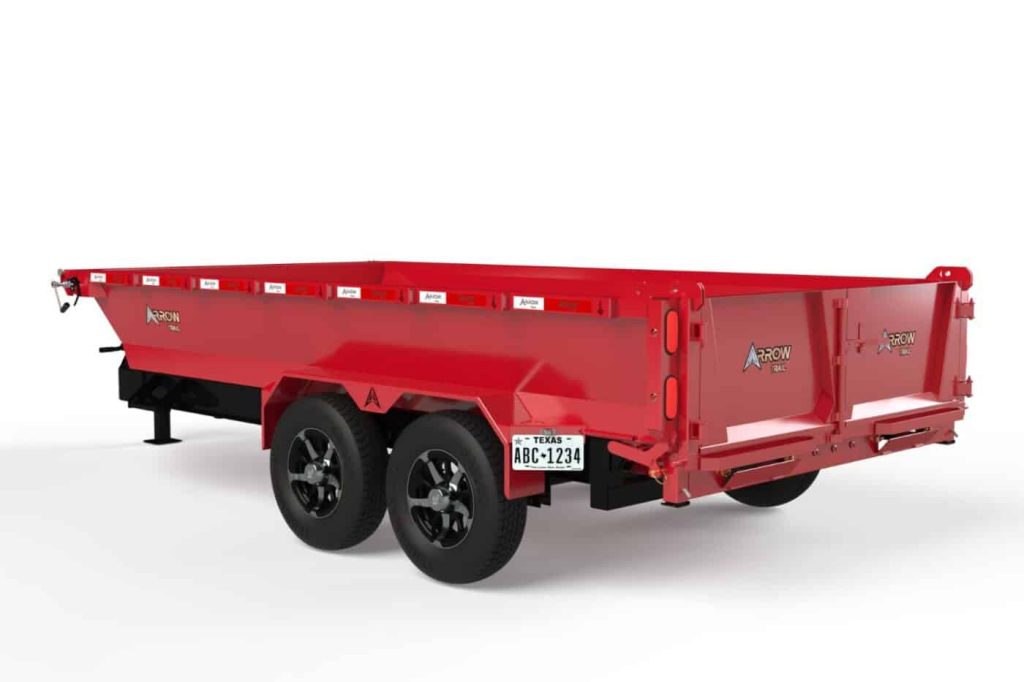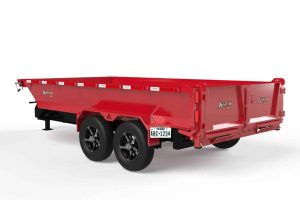
A trailer is more than just a hauling tool — it’s an investment. Proper maintenance ensures it stays safe, reliable, and functional for years to come. Whether you use your trailer occasionally for weekend projects or daily for work, taking a few simple steps can prevent costly repairs and protect both your trailer and the items you haul.
Here are the essential trailer maintenance tips every owner should follow to maximize longevity and safety.
1. Regularly Inspect Tires and Wheels
Tires are the most critical component for trailer safety. Worn or improperly inflated tires can lead to blowouts, swaying, or uneven wear.
- Check tire pressure monthly — even if the trailer isn’t in use. Tires lose pressure over time, and the wrong PSI can affect handling.
- Inspect tread and sidewalls for cracks, bulges, or excessive wear. Replace tires immediately if you notice damage.
- Lubricate wheel bearings annually or per manufacturer instructions. This prevents friction, overheating, and premature failure.
Also, make sure your trailer has the correct load rating tires for the weight you typically haul. Overloading tires is a leading cause of trailer accidents.
2. Maintain Brakes and Lights
Trailer brakes are essential for safe stopping, especially with heavier loads. Check them regularly and replace worn components promptly.
- Test brakes before each long trip to ensure they respond correctly.
- Inspect brake pads, drums, or discs for wear and replace as needed.
- Check all trailer lights — including brake, turn, and marker lights — to ensure they’re working and visible. Replace burned-out bulbs immediately.
Electrical connections should also be checked for corrosion, fraying, or loose wires. A secure and clean connection ensures your trailer signals communicate properly with your tow vehicle.
3. Clean and Protect the Trailer Frame
The trailer frame is exposed to moisture, road salt, dirt, and debris — all of which can cause rust and corrosion over time.
- Wash your trailer regularly, especially after traveling on wet, muddy, or salted roads.
- Inspect the frame for rust spots and touch them up with paint or rust-resistant coatings.
- Apply a protective coating or wax on metal surfaces annually to prevent corrosion.
Aluminum trailers resist rust better than steel, but they still benefit from regular cleaning and inspection.
4. Inspect and Maintain the Coupler and Hitch
The coupler, hitch, and safety chains are the connection points between your trailer and tow vehicle — and they must be in excellent condition.
- Make sure the coupler fits snugly on the tow ball and locks securely.
- Lubricate moving parts to prevent wear or seizing.
- Inspect safety chains for rust, cracks, or weak links and replace if necessary.
Proper hitch maintenance prevents accidents caused by loose or failed connections during transit.
5. Keep the Floor and Deck in Good Condition
Whether your trailer has wood, steel, or rubber flooring, maintaining the deck is important for both safety and longevity.
- For wood floors, inspect for rot, warping, or cracks. Apply sealant annually to protect from moisture.
- Steel floors should be cleaned and inspected for corrosion or bent sections. Touch up with paint where necessary.
- Rubber or composite flooring should be cleaned and checked for tears, lifting, or wear.
A well-maintained deck prevents cargo from shifting and reduces the risk of accidents or damage.
6. Grease Moving Parts
All moving parts — including hinges, ramps, jacks, and couplers — benefit from regular lubrication. Greasing these components prevents rust, reduces wear, and keeps your trailer operating smoothly.
Check your owner’s manual for recommended lubricants and schedules. Typically, a light coating every few months or before heavy use is sufficient.
7. Store Properly When Not in Use
Proper storage extends a trailer’s life and protects it from the elements.
- Store trailers under cover or indoors if possible.
- Use a trailer cover to protect it from UV damage, rain, and snow.
- If storing outdoors, ensure tires are off the ground or rotated periodically to prevent flat spots.
Long-term storage without proper care can lead to rust, cracking, or tire degradation.
Final Thoughts
Regular maintenance is the key to trailer safety, longevity, and performance. By inspecting tires, brakes, lights, frame, hitch, and flooring, lubricating moving parts, and storing your trailer properly, you’ll avoid costly repairs and ensure safe hauling for years.
For reliable trailers and expert guidance on maintenance, visit Grizzly Trailer Sales. Our team can help you choose the right trailer for your needs and provide tips to keep it in top condition, making your investment last longer while keeping every trip safe and stress-free.







